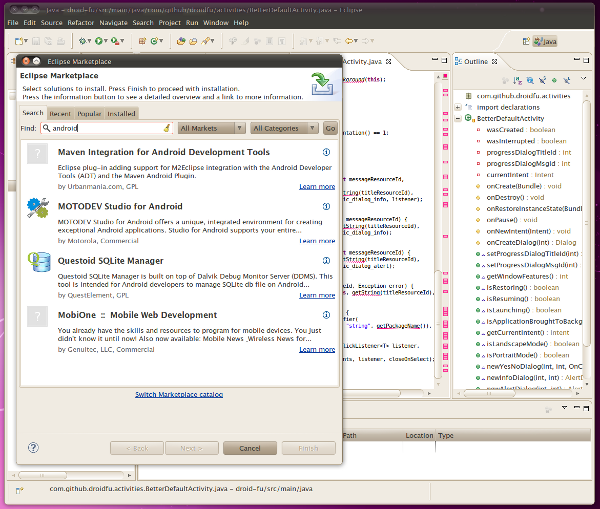
The Eclipse project has announced the Helios release train, a major update of the open source Eclipse integrated development environment (IDE) and many of its key components.
Due to the modularity of the software and the diversity of its community, Eclipse is developed like a platform. There are a multitude of independently-developed components that supply specific kinds of functionality. The most widely-used components are collected into a set of standard Eclipse packages that are targeted towards specific kinds of development.
This is the seventh consecutive year that the Eclipse community has undertaken a coordinated release of the core components and packages. The 2010 release, which is codenamed Helios, includes 39 individual projects and 12 separate packages. The packages are available for download from the Eclipse Web site.
"Besides the feat of coordinating such a large development effort, Helios introduces important innovations in areas such as Git support, Linux development and JavaScript support," said Eclipse Foundation executive director Mike Milinkovich in a statement. "Congratulations to everyone for another great release."
One of the most significant features introduced in this release is the new Eclipse Marketplace, which gives users a simple interface for finding new plugins and components. It makes third-party plugins a lot more discoverable and simplifies the installation process. To install PyDev, for example, I just had to type in a search query and hit the "install" button, whereas in the previous version I would have needed to copy and paste the PyDev package URL into the Eclipse update manager.
Another nice arrival in Helios is the new Linux IDE package for C and C++ development. It includes tight integration with the autotools build system and support for popular Linux development utilities such as SystemTap and Valgrind. Some interesting external components that were updated during this release cycle include a JavaScript debugging framework and an improved Git plugin that brings tightly-integrated distributed version control features to the IDE.
I tested the Helios Eclipse Java development package on my desktop computer, which is running Ubuntu 10.04 and has a six-core i7 980X. The new version of Eclipse takes roughly five seconds to start up on this system and uses several hundred megabytes when idle. Although the IDE's impressive feature set continues to grow, it's still very heavy on system resources.
The Eclipse Foundation has published a series of video demos that showcase the new features of Helios. For additional information about the projects that participated in the release, you can view the Helios project list.
reader comments
44